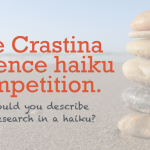How social platforms like AcademicLabs can make it easier to find the right research partners and aim high
The Belgian start-up AcademicLabs (www.academiclabs.co/#/) is the world’s first research lab matchmaking platform. Here, one of the founders Arne Smolders explains why scientists need to use this platform.
Have you ever had the feeling that you couldn’t test your scientific hypothesis due to lack of equipment or knowledge on how to tackle it? Did you ever have the feeling you published a paper too early and it would have had a bigger impact if you would have found the right collaborators with the experience and tools? Do you know which scientific tools are available at the lab around the corner? Your building, university or country? Do you have an idea about what other groups are working on similar topics?
As a research labs matchmaking platform, AcademicLabs provides solutions to overcome these problems in scientific research; it’s the world’s first research lab matchmaking platform. Pieter Torrez from Crastina and Scigrades had a talk with Arne Smolders, biologist and one of the ambitious founders of AcademicLabs.
The 2 founders of AcademicLabs: Arne Smolders (left) and Jonas Anseeuw (right) (copyright Telenet 2015)
1.What is AcademicLabs?
AcademicLabs is a new online research matchmaking platform.
It facilitates Open Science by opening access to knowledge, resources and services shared by research units at knowledge centers. If you as a researcher or professional have a good research idea or technological problem, but lack the necessary knowledge, instrument, tool or data, you can now finally find the right research partner, in minutes.
2.How will this improve the life of scientists? How and when should scientists use this platform?
As a scientist you kick most of your good research ideas straight to the garbage. That’s because you automatically judge whether your group has the knowledge and resources that is required to carry out your desired experiment. Usually, that’s not the case.
That leaves you with two options:(1) Find someone else who could do this experiment for you, which is a very tough job in this extremely fragmented landscape! Screening publications, Google, social networks, project databases…is very boring and ineffective.(2) Most of us just give up on these great experimental ideas and thereby don’t grasp potential opportunities for high quality research. This undermines our potential of breakthrough discoveries and a successful academic career. It is so unfortunate that all this brainpower is chained, especially knowing that so many research groups are out there really willing to share their specific expertise and services, but have no way to do this effectively.
That’s why we, two PhD students, started AcademicLabs.
Your research unit can now in minutes setup a profile and offer their expertise, unique instruments and (software) tools, routine/specific experiments and much more. This creates much more visibility than a group website and may lead to new (unpredictable and interdisciplinar) collaborations, more service revenues, higher project grant competitiveness, an increased number of citations and better reputation.
If you have great experimental ideas and need external help, you can finally find groups who are able AND willing to help you out! Whether you need an expensive instrument, unique IP, a superb but by now unknown software tool for your analysis, statistical advice, access to a library of 10000 chemicals, or someone with the right skill set to do one experiment for you…it’s all possible! Do you want to know what kind of research is being done in your institution, region or field of research, but you don’t want to screen hundreds of papers and awful research group websites? Welcome to AcademicLabs! With AcademicLabs your ambitious experiments are finally possible. You now have a fair chance to go compete with those top notch labs and have a thriving academic or science career yourself.
3. Can you give 3 pieces of advice to a research group who wants to join?
- Your group possesses unique strengths, whether it’s your knowledge and experience, unique tools, instruments or IP. Make use of it and partner with those who are desperately searching for it. It’s a clear win-win!
- Group leaders want to be in control of the group profile, so feel free to share it with them so the whole group can benefit from it. To bring the initial effort to nearly zero, copy/paste info from your website. Additionally, lots of research information will soon be added automatically. 😉
- To preserve quality, AcademicLabs will only be publicly accessible within the near future. For now everyone can click on your group’s url to view your profile. So to increase your visibility feel free to share the url via your email signature, social media, your group website … with your colleagues in your institution and research field, potentially interested parties and the general public.
4. What are the future plans of Academic labs?
We got many great ideas from our talks with hundreds of researchers and other stakeholders which we will prioritize together with our community of members. Our priorities are the following:
- to limit the effort required for researchers to setup and edit a profile
- to maximize qualitative matchmaking and
- to inform researchers to be successful and happy in their scientific career.
Therefore, we are now establishing partnerships with governments, knowledge centers, international organisations and small companies and non-profits. In the end, it’s all about putting our global pool of research capabilities and resources into action and enable millions of smart researchers and innovative organisations to push human knowledge forward and solve real world problems.
- Break it Down: Refreshing Science Communication - February 8, 2017
- How to create clear and attractive graphs/illustrations? - September 5, 2016
- How platforms like External Diffusion can highly improve the outreach of your research paper - April 18, 2016
- How platforms like Clarafi can drastically improve your scientific visualization skills - April 6, 2016
- How social platforms like AcademicLabs can make it easier to find the right research partners and aim high - March 23, 2016
- How science communication agencies like Mediomix can enlarge the outreach of your research - February 29, 2016
- How Life Science Network can create networking opportunities for scientists - January 27, 2016
- German design team creates “Next Generation Scientific Poster” - December 13, 2015





Leave a Reply
Want to join the discussion?Feel free to contribute!